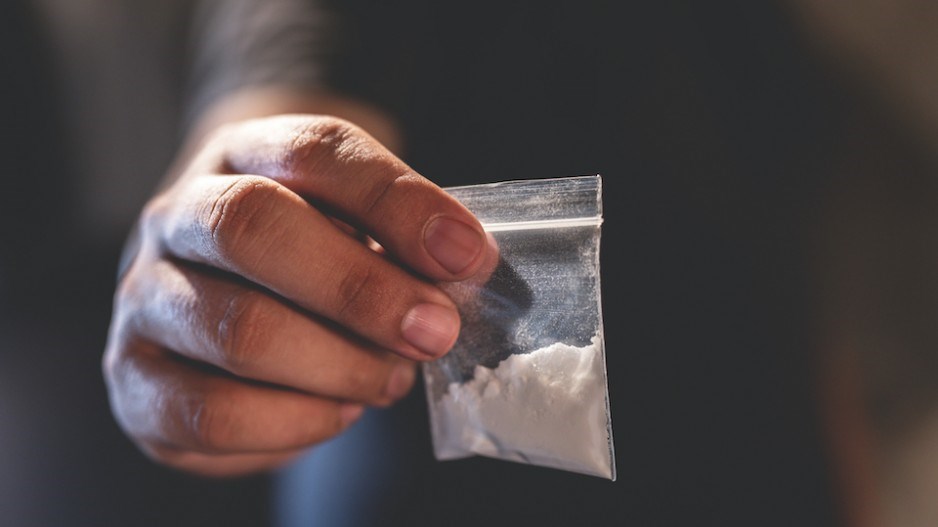A public dashboard to measure the impact of B.C.’s experiment with decriminalization might be a bit late, but it is coming soon, according to the minister responsible.
Mental Health and Addictions Minister Jennifer Whiteside said the province will go public in July with its data on the initial effects of a program to permit the personal possession of small amounts of illicit drugs. Previously, federal and provincial officials had pegged the data launch for around March or April.
“Using quantitative and qualitative data the dashboard will report on four areas: changes to law enforcement practices, changes in the socio-emotional wellbeing of people living with addiction, pathways to services and treatment and public awareness and understanding of decriminalization,” Whiteside said in a statement.
“More specifically, we will be tracking arrests, seizures and charges from police agencies. We will be reviewing survey data from police training. We will monitor data from the BCCDC unregulated drug poisoning emergency dashboard and review feedback from the Harm Reduction Client Survey, which includes interviews with people who use drugs.”
Whiteside’s comments are the first time the province has detailed the types and sources of metrics that will be used to gauge decriminalization on an ongoing basis.
B.C. was granted in January a Health Canada exemption to run a three-year decriminalization pilot project. Under the change, people are allowed to possess up to 2.5 grams of drugs like cocaine, heroin and fentanyl for personal use, without fear of arrest.
The province said the goal is to reduce stigma amongst drug users and encourage them to seek help during a toxic drug crisis that has killed more than 11,000 people since 2016. Measuring impact, and reporting it publicly, was one of the conditions of Health Canada’s approval for the provincial project.
But many municipalities are concerned that decriminalization has also encouraged drug use in public places and contributed to the crime and vandalism on the rise in urban areas. Dozens of towns and cities have lobbied the NDP government to bring in provincewide restrictions on public drug use, and boost addictions treatment spaces, out of fears decriminalization has made the street disorder crisis worse.
The Opposition BC United has accused the NDP government of recklessly charging into decriminalization, while failing to follow the “guard rails” set by Health Canada, such as better addictions treatment and public education.
The delay over the dashboard is just another example of the province being unprepared, said critic Elenore Sturko.
“You would think that having the dashboard ready for day one would have been a priority for this government and instead we are six months in,” said Sturko.
“They had all the time leading up to the beginning of this pilot to have this thing going from day one. They knew this was a requirement. It’s a failure in my mind and it just is par for the course in terms of transparency from the government particularly when it comes to sensitive issues.”
Up until now, the public has been in the dark about what measures will determine if the pilot is a success, failure, or needs to be tweaked, said Sturko.
Tracking seizures and arrests in the wake of decriminalization may be difficult because many police departments, including those in Victoria and Vancouver, weren’t arresting people for simple possession of drugs before decriminalization anyways, deeming it an ineffective use of police and court time.
“That will be really challenging,” said Sturko, a former Surrey RCMP officer.
The larger goal of the pilot, to reduce stigma, is equally difficult to measure
“We don’t know what it is publicly they are trying to achieve other than reducing stigma, and how does one measure stigma?” asked Sturko.
“Stigma is something that can be internal and how do we measure something so personal?”
Whiteside called decriminalization “a critical step in our province’s fight against the toxic drug crisis” and insisted baseline data has already been collected.
“Government is working closely with Health Canada to monitor benefits and outcomes of decriminalization,” she said.
But with the coroner reporting record overdose deaths last month, whatever metrics the province publishes to highlight the success of decriminalization are going to run headlong into an inescapable real-world conclusion: More people than ever are still dying.
Rob Shaw has spent more than 15 years covering B.C. politics, now reporting for CHEK News and writing for Glacier Media. He is the co-author of the national bestselling book A Matter of Confidence, host of the weekly podcast Political Capital, and a regular guest on CBC Radio. [email protected]




